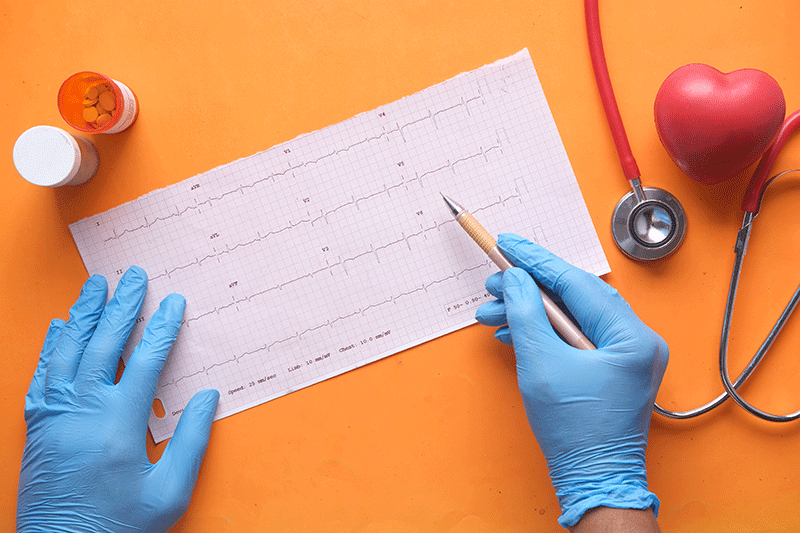Heart disease can take many forms, and while many may require similar treatment approaches, some need more specialized care than others. It’s important to understand the differences between them, so you know what kind of care you or your loved ones will need in the future. Keep reading to find out about the different types of heart disease you can get, and what kinds of treatment are best suited for each one.
The first step in treating heart disease is to identify the type of heart disease that you or someone you love has. There are many different types of heart disease, and they can be challenging to tell apart without a cardiovascular professional. Here are some symptoms that people with different types of heart disease may experience. Nausea, Indigestion, Heartburn, Chest Discomfort, Stomach Pain, Throat or Jaw Pain.
We will explain each one in the last paragraph of this article be sure to continue reading to the last line.
Coronary Artery Bypass Graft (CABG)
Coronary artery bypass graft, or CABG, surgery is one of the most common treatments for heart disease. In this procedure, a doctor takes blood vessels from other parts of the body and uses them to bypass clogged arteries near the heart. This increases blood flow and reduces stress on the heart. It can also improve chest pain and make it easier for you to exercise.
Percutaneous Coronary Intervention (PCI)
PCI is one of the most common ways of treating heart disease. It involves threading a thin tube into the blood vessel that supplies oxygen-rich blood to your heart and placing a tiny balloon at the end. Once in place, the balloon is inflated, which widens the opening and creates more space for blood flow. Coronary artery bypass graft surgery (CABG) may also be necessary in some cases.
Cardiac Rehabilitation
A form of heart disease treatment, cardiac rehabilitation can help individuals recover from a stroke or a major medical condition like heart failure. With the support of a qualified medical team, participants in cardiac rehabilitation have been known to live longer, with less pain and physical impairment. Cardiac rehabilitation is sometimes recommended for people who need extra assistance managing conditions like high blood pressure and diabetes. Rehabilitative activities include exercise training and educational sessions about living with heart disease.
Lifestyle Changes
A healthy lifestyle is one of the best ways to prevent heart disease and manage any symptoms you may have. Nausea, indigestion, heartburn, chest discomfort, stomach pain, and throat or jaw pain are all signs that you may be suffering from some form of heart disease. Start making changes today by eating a balanced diet with lots of fiber and omega-3s. Exercise regularly and drink plenty of water.
Heart disease symptoms caused by congenital heart defects
Congenital heart defects are often identified by chest pain, throat or jaw pain, and stomach pain. Chest discomfort might be caused by a narrowing of the pulmonary valve and can be alleviated with beta-blockers. If you experience throat or jaw pain, it could be due to an irregular heartbeat. Stomach pain may occur because of a side effect of medication or because you have an enlarged heart that is pressing on your abdomen.
Chest Discomfort
If you experience chest discomfort, your healthcare professional will likely ask about your chest pain and check for symptoms of a heart attack.
If you have stomach pain, your healthcare professional will want to know if it has been worse than normal or something new. They may also ask about food-related allergies that are contributing. If you have throat or jaw pain, they will likely be checking for signs of strep throat or swollen glands in the neck.
Throat or Jaw Pain
More common than chest pain and less likely than stomach pain, throat or jaw pain is the most difficult symptom to diagnose. Nevertheless, it’s important that you see a doctor as soon as possible if you’re experiencing this symptom; it could be a sign of something serious like a heart attack or stroke.
Snoring
If you’re not getting enough oxygen while you sleep, it can lead to snoring. Snoring is especially common among those who are overweight or have a cold, but allergies or an enlarged tongue can also cause it. Even if you don’t snore, there may be some other symptoms that indicate you might have apnea, including chest discomfort and stomach pain. If your throat or jaw hurt when you wake up in the morning or when chewing food, this could be a sign of sleep apnea.
Sweating
One of the most common signs of heart disease is chest discomfort. Sweating is also a symptom, but it can also be caused by any number of other things. If you are experiencing excessive sweating or chest discomfort, it’s best to contact your doctor as soon as possible.


Leave a Comment